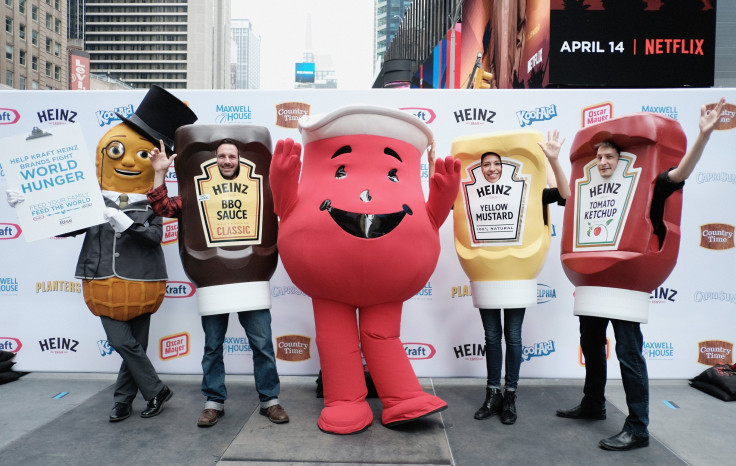Heinz ‘Little Kids Shredz’ Violates Company’s Own Sugar Guidelines, ACCC Claims

Australian Competition and Consumer Commission has sued Heinz for falsely marketing one of its food products for toddlers, branding it as “healthy” when in reality it contains alarming levels of sugar, capable of becoming a precursor to a number of diseases. The legal action launched in June last year saw its opening address, Monday.
The “Little Kids Shredz” snack by Heinz designed for toddlers that claims to have "99 percent fruit and veg,” is actually overloaded with sugar that violates the very guidelines that the food giant bases its products on, counsel for the ACCC, Tom Duggan stated during the hearing in court, ABC News reported.
Read: Kraft Heinz To Cut 2,500 Jobs As Part Of A Cost-Slashing Plan As Healthy Competitors Advance
Duggan stated that Heinz sought to deceive parents who are looking for snacks filled with nutrition for their kids by hiding from them the fact that for every 100 grams of “berries, apple, and veg,” the toddlers will be fed 68.7 grams of sugar. "This product has added sugar, as a consequence, it is not a nutritious alternative to the fruit and vegetables depicted on the packaging," Duggan said.
Heinz kids snacks 'contain over 60% sugar' much ⬆️ than real fruit, for example 'an 🍎 contains around 10% sugar' https://t.co/j8s4Vi0dpg
— Laura Jabri (@laurajabri) July 24, 2017
Furthermore, the product defies the very standards the company has set for its own products. "Heinz's internal guide specifies that the less than 30 percent [sugar] guide includes the use of fruit juice and fruit paste," Duggan said.
Heinz has strongly denied the allegations made by the ACCC with regards to the product's packaging. "The Shredz products were snack foods available in small individually packaged serves appropriate for children aged one to three,” Heinz said in a statement, according to the ABC. “The Shredz products had a similar nutrition profile to dried apple or sultanas. Heinz stands behind the Shredz products and their packaging."
Duggan stated that there is a major flaw in the defense’s argument: “There are two important differences between the Shredz product and dried fruit, one is the addition of the apple juice concentrate. Accepting that it is a naturally occurring sugar, it is still an added sugar."
The ACCC is seeking hefty fines, corrective notices and costs from Heinz. The health watchdog teamed up with campaign group Obesity Policy Coalition to launch legal action against the company.
Nutritionist and dietitian Rosemary Stanton who helped devise the Australian dietary guidelines suggested rebranding the toddler food product as a “confectionery” because regardless of the number of vitamins in confectionaries, they are still desserts and not a meal.
"There are positive nutrients in these products ... just as there are positive nutrients in a Big Mac," she said.
According to Action On Sugar, a site maintained by the University of London and dedicated to studying the effects of sugar intake for both children and adults, the recommendation for children aged 5-11 years is 24g of sugar per day and 19g for children aged 4-6 years.
Read: Kraft Foods Group Inc, H.J. Heinz Company Merger Unlikely To Face Antitrust Hurdles
Dr. Robert Lustig, one of the leading experts on childhood obesity, stated that excessive intake of sugar has not only been linked to obesity but also other health issues. “The problem with sugar isn't just weight gain ... A growing body of scientific evidence is showing that fructose can trigger processes that lead to liver toxicity and a host of other chronic diseases. A little is not a problem, but a lot kills -- slowly."
Unfortunately, stated Dr. Lustig, there are infant formulas available in the market, which contain more than 50 percent sugar, reported an article on Mercola.
© Copyright IBTimes 2024. All rights reserved.






















